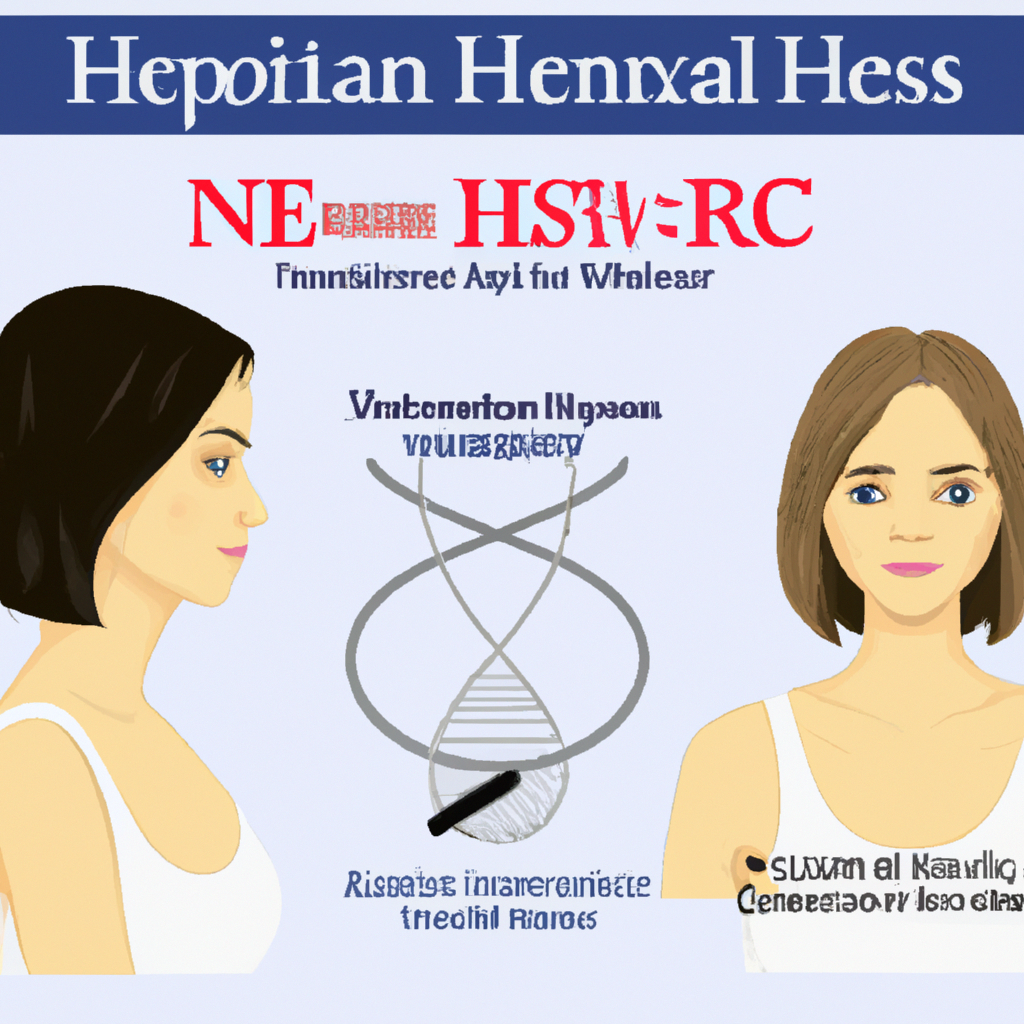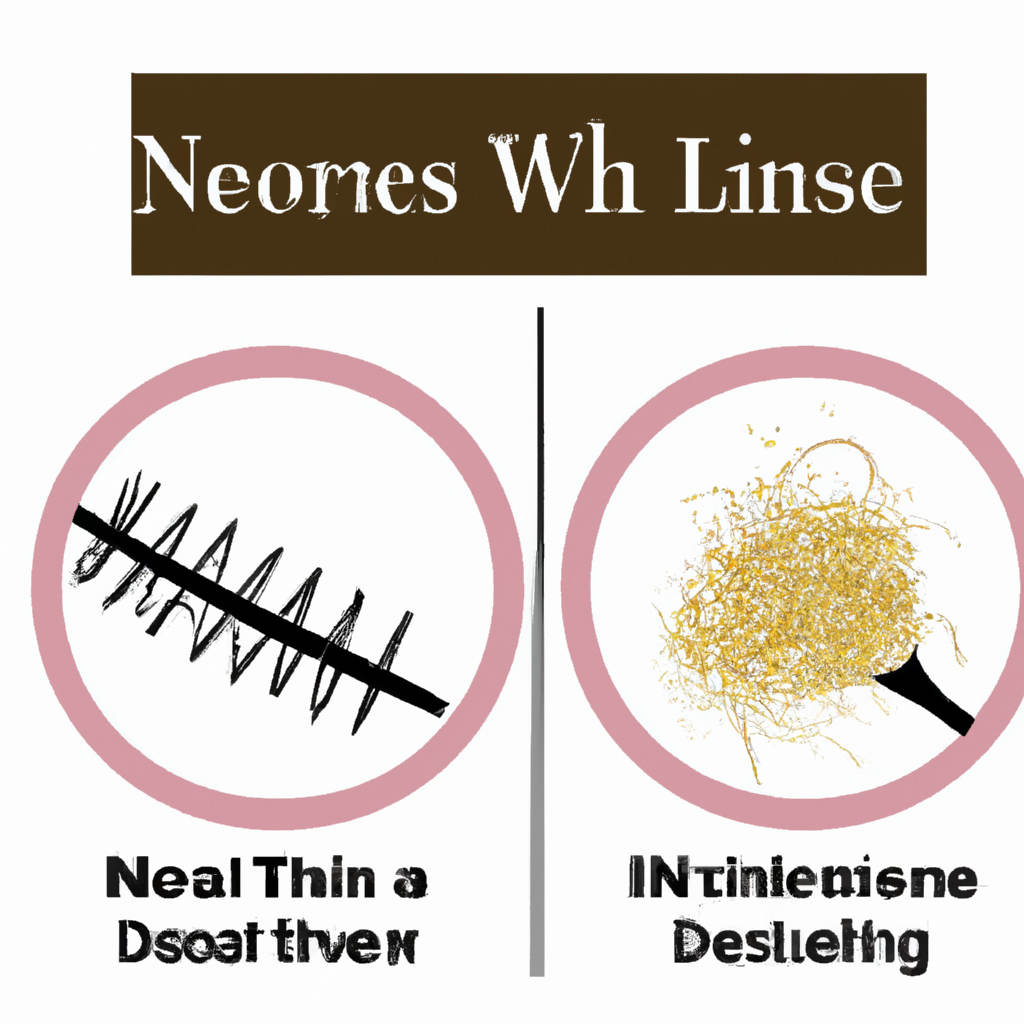
The Link Between Weight Loss and Hair Loss: Nutrient Deficiencies, Stress, and Hormonal Changes
Losing weight can be an exciting and rewarding journey towards improved health and self-confidence. However, what you may not realize is that shedding those pounds could also lead to another common concern: hair loss. Yes, you read that right! Nutrient deficiencies, stress, and hormonal changes associated with weight loss can all contribute to hair loss. Sudden weight loss or following restrictive diets can trigger a condition called acute telogen effluvium (TE), which causes hair to prematurely enter the resting phase and fall out. Even crash dieting, very low protein diets, and weight loss surgeries can perpetuate this issue. While hair loss itself may not be dangerous, it is vital to address the underlying causes to prevent potential health consequences. To maintain healthy hair during weight loss, it is crucial to follow a balanced and sustainable diet. If you notice hair loss, it is essential to consult a healthcare provider who can help identify the cause and develop an effective treatment plan.
Table of Contents
ToggleThe Link Between Weight Loss and Hair Loss: Nutrient Deficiencies, Stress, and Hormonal Changes
Losing weight can be a transformative journey, but it can also come with some unexpected side effects, such as hair loss. In fact, hair loss can occur after weight loss due to nutrient deficiencies, stress, and hormonal changes. Understanding the connection between weight loss and hair loss can help you take proactive steps to minimize its impact on your overall well-being.
Nutrient Deficiencies and Hair Loss
One of the main reasons for hair loss during weight loss is nutrient deficiencies. When you restrict your calorie intake or follow a highly restrictive diet, you may not be getting all the essential nutrients that your body needs to maintain healthy hair growth. Several key nutrients are especially vital for promoting hair health.
Iron Deficiency
Iron deficiency is a common nutrient deficiency that can cause hair loss. Iron plays a crucial role in oxygen transportation to the hair follicles, and when levels are low, the hair follicles may not receive enough oxygen to function optimally. Including iron-rich foods like lean meats, beans, and leafy greens in your diet can help prevent iron deficiency-related hair loss.
Vitamin D Deficiency
Vitamin D is another essential nutrient for healthy hair growth. Research has found that low levels of vitamin D in the body are associated with hair loss and thinning. To maintain sufficient vitamin D levels, spend time outdoors in the sunlight and incorporate foods rich in vitamin D, such as fatty fish and fortified dairy products, into your diet.
Zinc Deficiency
Zinc is a mineral that is critical for hair health, as it aids in the production of new hair cells. A deficiency in zinc can lead to hair loss, as well as other scalp conditions. Including zinc-rich foods like oysters, beef, and pumpkin seeds in your diet can help ensure you’re meeting your daily zinc requirements.
Protein Deficiency
Protein is the building block of our hair, so it’s no surprise that a deficiency in this macronutrient can contribute to hair loss. When your body is lacking sufficient protein, it prioritizes other essential bodily functions, leaving less protein available for hair growth. Including lean meats, poultry, fish, dairy, and plant-based sources of protein in your diet can help prevent protein deficiency-related hair loss.
Essential Fatty Acids Deficiency
Essential fatty acids, particularly omega-3 fatty acids, are important for maintaining healthy hair and scalp. They help nourish the hair follicles, improve hair elasticity, and prevent dryness and flakiness. Including foods like fatty fish, flaxseeds, chia seeds, and walnuts in your diet can provide you with a good source of essential fatty acids.
Stress and Hair Loss
Stress is another significant factor that can contribute to hair loss during weight loss. Sudden and excessive weight loss can put a significant amount of stress on your body, triggering a condition called telogen effluvium.
Telogen Effluvium
Telogen effluvium is a common type of hair loss that occurs when there is a disruption in the hair growth cycle. Typically, 90 percent of our hair is in the growing phase (anagen), while the remaining 10 percent is in the resting phase (telogen). However, when the body undergoes significant stress or experiences a shock, a large number of hair follicles can be pushed into the resting phase, causing them to fall out prematurely.
Causes of Stress-Related Hair Loss
There are several causes of stress-related hair loss during weight loss. Crash dieting, very low protein diets, and weight loss surgeries can all cause hair loss due to the sudden and drastic changes they impose on the body. These extreme measures can put the body into a state of stress, leading to telogen effluvium and subsequent hair loss.
Impact of Chronic Stress
Chronic stress can also have a negative impact on hair health. When you’re constantly stressed, your body produces more stress hormones like cortisol, which can disrupt the normal hair growth cycle. Additionally, chronic stress can lead to unhealthy habits like poor sleep, inadequate nutrition, and decreased self-care, all of which can contribute to hair loss.
Hormonal Changes and Hair Loss
Hormonal changes can also play a role in hair loss during weight loss. Fluctuations in hormone levels can disrupt the normal hair growth cycle and lead to hair thinning or shedding.
Hormonal Imbalance and Hair Loss
Hormonal imbalances, such as those associated with polycystic ovary syndrome (PCOS) and thyroid disorders, can contribute to hair loss. Both conditions can disrupt the balance of hormones in the body, affecting hair growth. If you suspect that a hormonal imbalance is causing your hair loss, it is essential to seek medical attention and get the appropriate treatment.
Polycystic Ovary Syndrome (PCOS) and Hair Loss
PCOS is a hormonal disorder that affects women and often leads to hair loss. It is characterized by irregular periods, ovarian cysts, and high levels of androgens (male hormones) in the body. The excess androgens can cause hair follicles to become shrink and produce thinner, finer hair.
Thyroid Disorders and Hair Loss
Thyroid disorders, such as hypothyroidism and hyperthyroidism, can also result in hair loss. When the thyroid gland does not produce enough or produces too much thyroid hormone, it can disrupt the hair growth cycle. Additionally, certain medications used to treat thyroid disorders can also contribute to hair loss as a side effect.
Androgenetic Alopecia (Male/Female Pattern Baldness)
Androgenetic alopecia, commonly known as male or female pattern baldness, is a hereditary condition that can be triggered or accelerated by weight loss. This condition is characterized by a gradual thinning of the hair and a receding hairline in men and thinning hair on the crown in women. While weight loss itself may not cause androgenetic alopecia, certain lifestyle factors during weight loss, such as nutrient deficiencies or hormonal changes, can exacerbate the condition.
Preventing Hair Loss During Weight Loss
Hair loss during weight loss can be discouraging, but there are ways to minimize its impact and promote healthy hair growth.
Follow a Balanced and Sustainable Diet
One of the most effective ways to prevent hair loss during weight loss is to follow a balanced and sustainable diet. Instead of crash dieting or severely limiting your calorie intake, focus on nourishing your body with a variety of nutrient-dense foods. Include a good balance of protein, healthy fats, complex carbohydrates, vitamins, and minerals to support overall hair health.
Ensure Sufficient Nutrient Intake
To prevent nutrient deficiencies and subsequent hair loss, ensure that you are getting adequate amounts of essential nutrients. Consider incorporating supplements into your routine if necessary, but always consult with a healthcare professional before starting any new supplements.
Manage Stress Levels
Effective stress management techniques can help reduce the impact of stress on your hair health. Engage in activities that promote relaxation, such as yoga, meditation, deep breathing exercises, or spending time in nature. Prioritize self-care and make time for activities that bring you joy and help you unwind.
Avoid Rapid Weight Loss
To minimize the risk of hair loss during weight loss, avoid rapid or extreme weight loss methods. Gradual weight loss allows your body to adjust slowly and minimize the stress on your system. Aim for a sustainable weight loss rate of 1-2 pounds per week.
Consider Hair Supplements
Hair supplements, such as biotin or collagen, may help support hair growth and overall hair health. While the effectiveness of these supplements varies from person to person, they may be worth considering as part of a comprehensive hair care routine. Discuss with your healthcare provider or a trichologist to determine the right supplements for your needs.
Consult a Healthcare Provider
If you are experiencing significant hair loss during weight loss, it is important to consult a healthcare provider. They can help identify the underlying cause of your hair loss and develop a tailored treatment plan. Depending on the cause, they may recommend medical treatments, lifestyle changes, or other interventions to promote hair growth.
Seeking Treatment for Hair Loss
Treating hair loss during weight loss requires addressing the underlying cause. Depending on the cause and severity of hair loss, various treatment options are available.
Identifying the Underlying Cause
Identifying the underlying cause of hair loss is crucial for effective treatment. Your healthcare provider may perform blood tests, scalp examinations, or other diagnostic procedures to determine the cause. Once the cause is identified, appropriate treatment options can be explored.
Medical Treatments
There are several medical treatments available for hair loss, depending on the cause. These may include topical medications, oral medications, or hair growth therapies such as laser therapy or platelet-rich plasma (PRP) treatments. Your healthcare provider can guide you on the most suitable treatment option for your specific situation.
Lifestyle Changes
In addition to medical treatments, making certain lifestyle changes can help promote hair growth. This may include adopting stress management techniques, improving sleep quality, maintaining a balanced diet, and avoiding harsh hair treatments or styles that can damage the hair follicles.
Hair Transplant Surgery
For individuals experiencing significant or permanent hair loss, hair transplant surgery may be an option to consider. During this procedure, hair follicles are taken from areas of the scalp with healthy hair growth and transplanted to areas with thinning or no hair. Hair transplant surgery should be discussed with a qualified hair transplant specialist to determine if it is the right choice for you.
Wigs and Hairpieces
For temporary or partial hair loss, wigs and hairpieces can be a practical solution. They offer a non-invasive and instant way to restore the appearance of a full head of hair. Explore different styles, colors, and types of wigs to find one that suits your preferences and needs.
Emotional Support and Counseling
Experiencing hair loss can be emotionally challenging. Seeking support from friends, family, or a professional counselor can help you navigate the emotional impact of hair loss. They can provide guidance, reassurance, and coping strategies to help you feel more confident and comfortable throughout your weight loss journey.
In conclusion, hair loss during weight loss can be attributed to nutrient deficiencies, stress, and hormonal changes. Understanding the underlying factors and taking proactive steps to address them can help minimize the impact of hair loss and promote healthy hair growth. Make sure to follow a balanced and sustainable diet, manage stress levels, and consult a healthcare provider if experiencing significant hair loss. Remember, hair loss is not dangerous, but it can be a symptom of underlying health issues that may require attention. Take care of your hair and prioritize your overall well-being throughout your weight loss journey.
Discover the link between weight loss and hair loss. Nutrient deficiencies, stress, and hormonal changes can all contribute to hair loss. Find out how to prevent it and maintain healthy hair during your weight loss journey.


